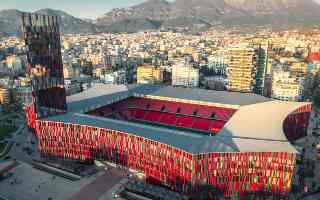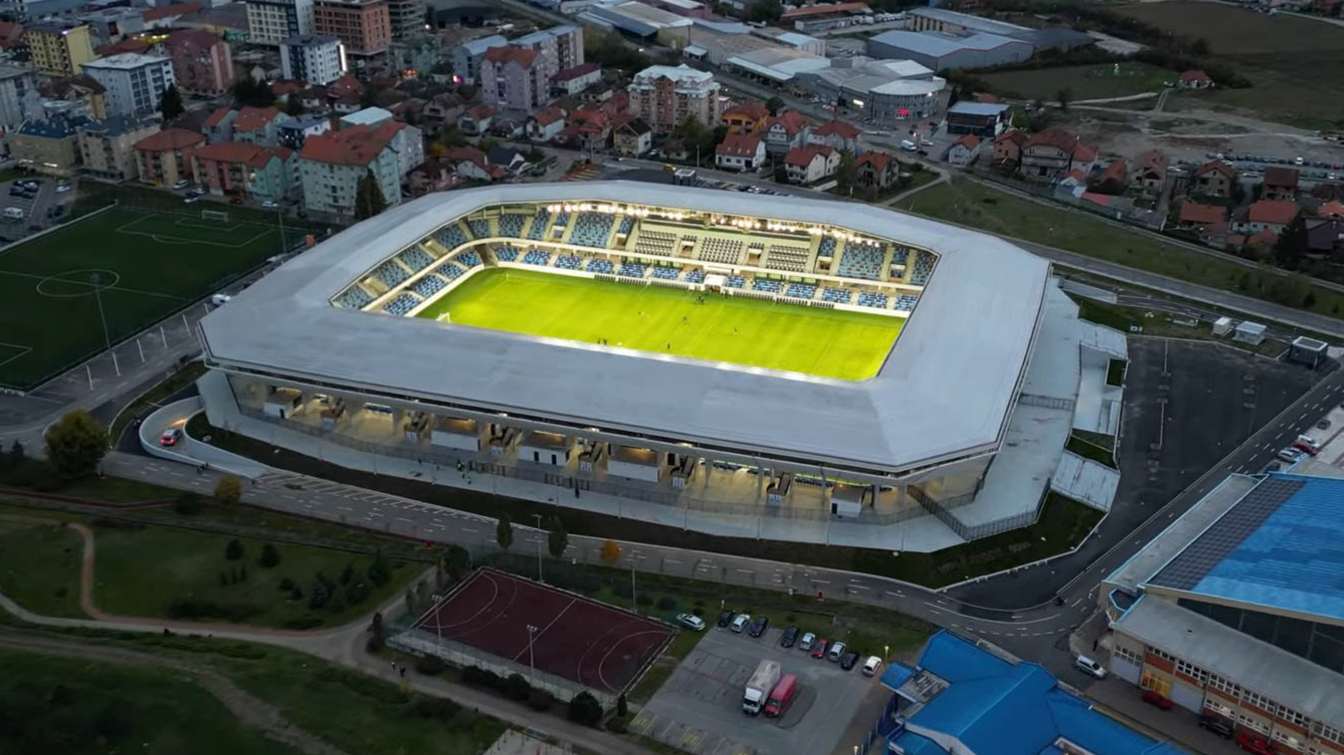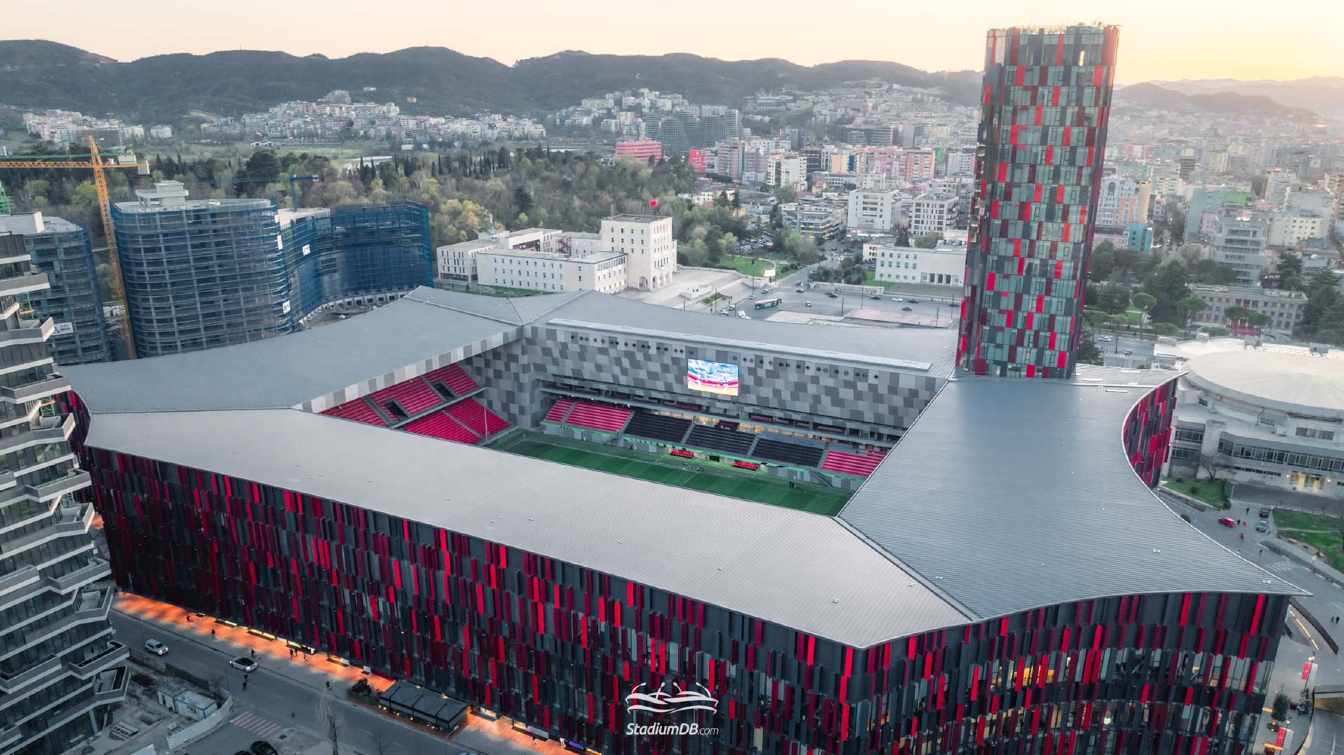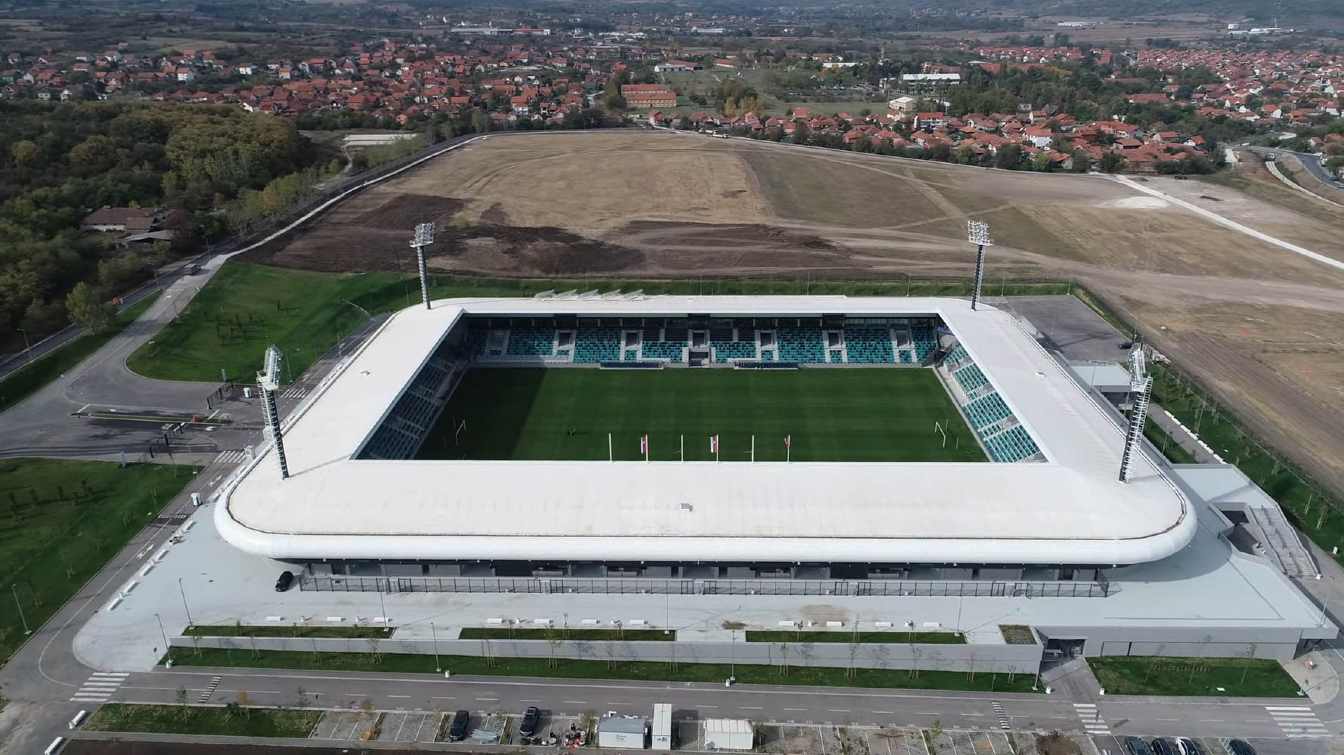UEFA: Risky move by UEFA. Albania and Serbia to host Euro U-21
source: StadiumDB.com; author: Paulina Skóra
 UEFA has officially announced that Albania and Serbia will co-host the U-21 European Championship in 2027. Their joint bid was the only option after Belgium and Turkey withdrew from organizing this biennial tournament in September of last year.
UEFA has officially announced that Albania and Serbia will co-host the U-21 European Championship in 2027. Their joint bid was the only option after Belgium and Turkey withdrew from organizing this biennial tournament in September of last year.
Advertisement
The Kosovo dispute even reached football stadiums
It’s not surprising that these two Balkan rivals won the football race, but it is surprising that they decided to cooperate. Relations between Albania and Serbia have been tense since the 19th century, and they escalated particularly in the late 1990s due to the conflict in Kosovo. Kosovo holds historical significance for Serbia and is considered the cradle of its civilization, but today, the majority of its population consists of Albanians, who have long sought independence.
Kosovo, supported by Albania, declared independence from Serbia in 2008, and its sovereignty has been recognized by over 100 countries worldwide. Serbia does not belong to this group, and the issue of Kosovo frequently emerges in Albania-Serbia relations, including in the context of football. The last time the two teams faced each other was during the Euro 2016 qualifiers in Belgrade in 2014. During the match, a drone carrying the flag of Greater Albania appeared over the pitch, causing tensions on the field. The flag was torn down by a Serbian player, which led to scuffles between players from both teams. Amid the chaos, the Albanian players left the field. UEFA initially awarded Serbia a 3-0 forfeit win, but the Court of Arbitration for Sport later ruled that Serbia bore greater responsibility for the match’s disruption and awarded the victory to Albania.
 © DoubleEspresso | Fudbalski stadion Lagator
© DoubleEspresso | Fudbalski stadion Lagator
Tensions continue even without direct matches
For the next decade, the teams avoided direct encounters until Euro 2024 in Germany. Although they did not face each other on the pitch, their rivalry became one of the tournament’s major talking points. UEFA repeatedly sanctioned both the Albanian and Serbian football federations for incidents involving their supporters, including the display of banners deemed provocative. A journalist from Kosovo was sent home for provoking Serbian fans during one of the matches, and Albanian striker Mirlind Daku received a two-match suspension for taking a microphone after Albania’s draw with Croatia and shouting nationalist slogans to the crowd.
This match became a focal point of Serbia’s tense relations with its neighbors—Albanian and Croatian fans were reportedly chanting anti-Serbian slogans. The Albanian federation was fined nearly £150,000 for the behavior of its supporters and players in Germany. Serbia also faced additional penalties for incidents during the Nations League matches, including the burning of Albanian flags by some fans.
 © Grzegorz Kaliciak | Air Albania Stadium (Arena Kombëtare)
© Grzegorz Kaliciak | Air Albania Stadium (Arena Kombëtare)
A joint tournament as a chance to calm tensions?
Given this history of conflict, it’s no surprise that the announcement of Albania and Serbia’s joint bid sparked protests in Albania and Kosovo last year. However, both federations are determined to improve their relations, especially in light of the 2026 World Cup qualification draw, where Albania and Serbia were placed in the same group.
The tournament, which will feature 16 teams, will be held at four stadiums in Albania (Tirana, Shkodra, Elbasan, and Rrogozhinë) and four in Serbia (Novi Sad, Loznica, Leskovac, and Zaječar). The opening match will be played at the Stadion Karađorđe in Novi Sad, Serbia, while the final will take place at the Air Albania Stadium in Tirana, Albania.
This will be the first time the U-21 European Championship is held in cities in both Albania and Serbia. This year, Albania will also host the UEFA final tournament for the first time in its history, with the U-17 European Championship. In 2022, Tirana, the capital of Albania, hosted the historic inaugural UEFA Europa Conference League final. Serbia, on the other hand, hosted the U-17 European Championship in 2011 and was the organizer of the 2016 Futsal Euro tournament in Belgrade.
 © Dragan Stojanović | Stadion Kraljevica
© Dragan Stojanović | Stadion Kraljevica
Advertisement
 StadiumDB
StadiumDB